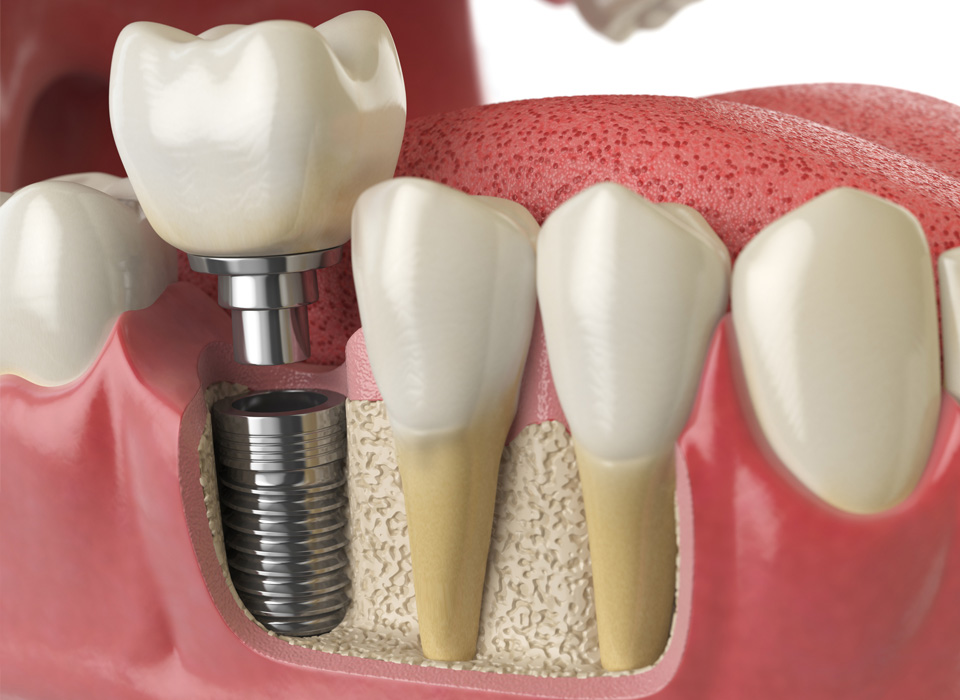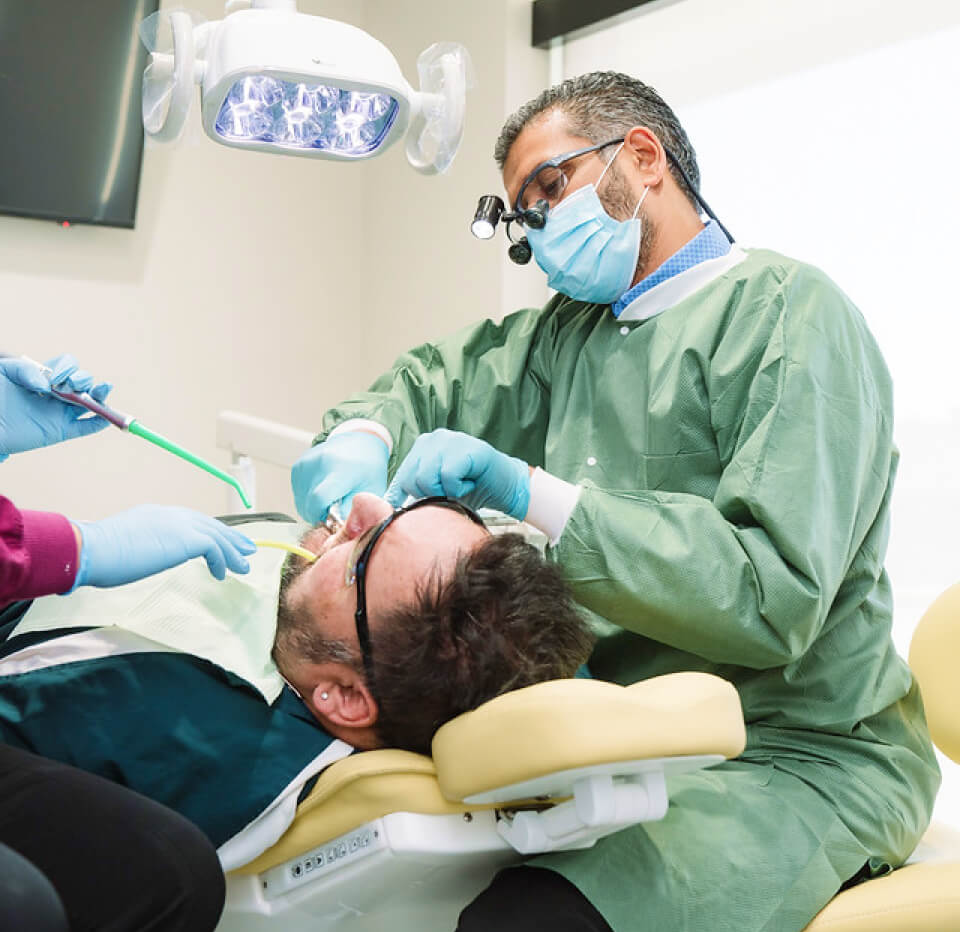Dental Implants

Table of Contents
Toggle
What Are Dental Implants?
Dental implants specifically refer to medical-grade titanium posts inserted into the gums. However, it can also refer to the entire process for replacing a missing tooth. The implant post itself goes into the gums, where it naturally fuses with the jaw to create an impressively stable anchor. In most cases, this is used to attach an artificial tooth (or “crown”), which replaces a missing tooth.
Additionally, patients can have implants that attach to specialized dentures. These implant-supported dentures provide added stability while still being removable for ease of cleaning.

Benefits of Dental Implants
- Exceptionally long-lasting results
- Seamlessly natural look
- No limitations to your diet
- Prevent additional jaw bone loss
- Prevent teeth from shifting
Mini Dental Implants
Advantages of Mini Dental Implants
- Can be positioned quickly
- Require no incision or stitches
- Ideal for patients who cannot have surgery
- Can use with existing dentures
- Same-day benefits and usage
Are Mini Dental Implants Right for Me?
- Heart patients with recent surgery
- People with a severe case of diabetes
- Patients who prefer the lower denture to be firmer
- Patients with a limited budget for other options
- Regular smokers
- Patients with blood clot problems
- Patients having bisphosphonate treatments or medicines for osteoporosis
Dental Implants FAQs
How long do dental implants last?
- Brush twice daily; floss (at least) once daily
- Attending check-ups and professional cleaning twice per year
- Minimize intake of sugary or acidic foods and beverages
- Treat any dental concerns as soon as they arise
What is the process for getting an implant?
- Consultation: Meet with a specialist who will evaluate your case and make appropriate recommendations.
- Implant Placement: Placing the implant post involves a quick surgical procedure.
- Healing: It takes about 4–6 months for the implant to heal fully and fuse to the jaw. Once it does, you can come in and we place the abutment and take impressions of your teeth.
- The Crown: Your last visit involves affixing the crown to your implant. Before you leave, we ensure the tooth fits properly and looks like a seamless part of your smile.
Are dental implants right for me?
Dental implants best suit patients who are ready for a multistep process but want long-lasting results. Additionally, they work best for patients only missing a single tooth or a couple of teeth. Theoretically, you could replace all your teeth with implants. However, such an approach is not feasible. For replacing multiple teeth, we may recommend dental bridges or dentures.
Patients with insufficient jaw bone mass may first need a bone grafting procedure, which we discuss below.
What is bone grafting, and do I need it?
Despite the intimidating name, bone grafting is a simple way to rebuild lost bone density. For dental implants to work, there must be enough bone mass for the rod to fuse to. When a patient is missing that mass, we can apply a grafting material directly to the bone. Over the following weeks to months, the jaw will respond by rebuilding mass over that area. When you have enough bone density, you can move on with the next step of the process.
How do the results look?
Our custom-fabricated crowns ensure your dental implants will look like a natural part of your smile. We custom-match the material to blend in seamlessly with your smile. The shape also matches that tooth’s counterpart, lending to a balanced and symmetrical appearance.
Schedule Your Appointment
Fill out our appointment form to set up your visit for a one-on-one consultation with Dr. Desai, our dentist in Glendora. Learn about the treatment and explore our various services to ensure your smile stays at 100%.

Read more reviews on

We are proudly associated with






